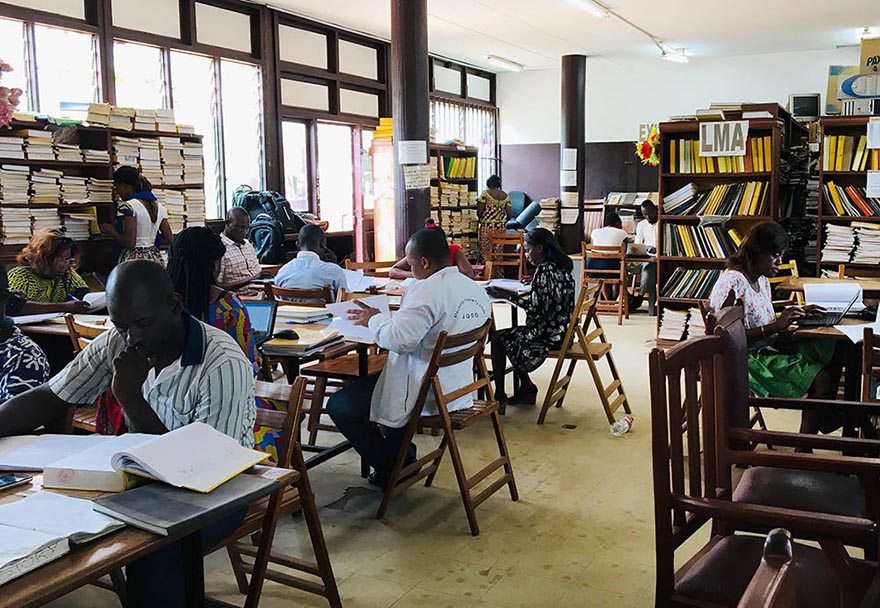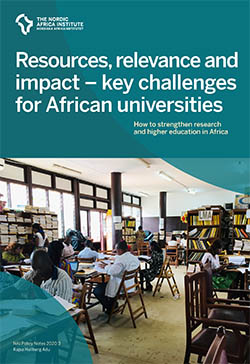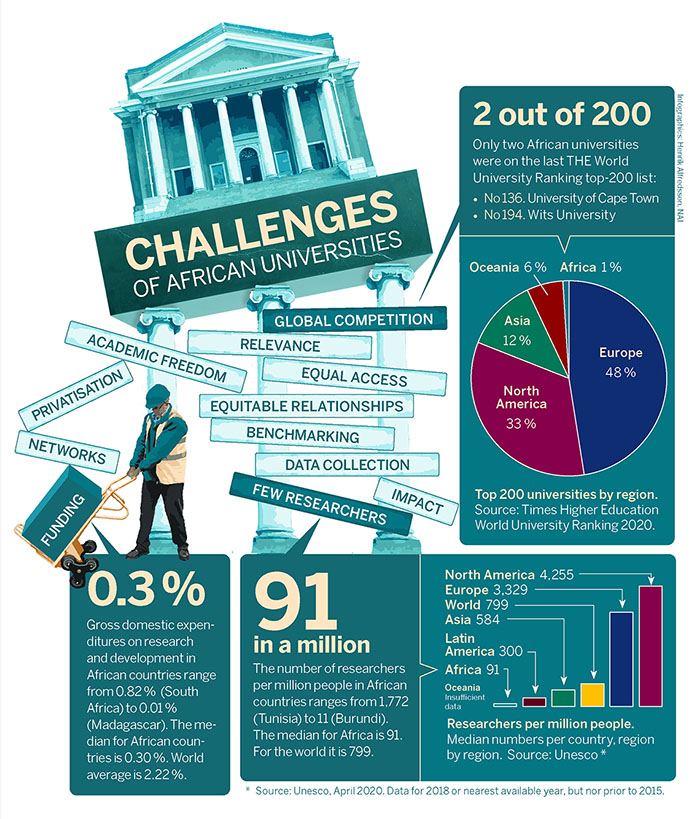Resources, relevance and impact – key challenges for African universities

Social Science Library, University of Yaoundé, Cameroon.
Global and regional goals, such as Agenda 2030 and the African Union’s Continental Education Strategy for Africa, foreground higher education as an engine for development and job creation. Yet, many African universities perform weakly in international comparison. A new policy note from NAI looks at the challenges in strengthening the resources, relevance and impact of research and higher education in Africa.
According to Kajsa Hallberg Adu, post-doctoral researcher at the Nordic Africa Institute and author of the policy note External link, opens in new window., many African countries lag far behind their needs in terms of researchers and lecturers.
External link, opens in new window., many African countries lag far behind their needs in terms of researchers and lecturers.
"The result is a downward spiral: vast lecture halls brimming with students; underqualified and overworked professors; and consequently a lack of locally produced research to drive the education", she warns.
Kajsa Hallberg Adu maps the main challenges facing research and higher education in many African countries today. But she also points with some optimism at how universities have opened up to more students, strengthening academic freedom and making the universities even more crucial as drivers for democracy.
"While spending on research and development is perhaps not increasing fast enough, innovative schemes do allow new investment to flow into higher education, particularly from African students and their families", she argues.
Policy advice
The policy note gives six recommendations for policymakers on how to strengthen research and higher education in Africa:
- Minimise inequality
- Improve data collection
- Train more lecturers
- Benchmarking and networking
- Build equitable relationships
- Safeguard academic freedom
Fulltext version of the policy note External link, opens in new window.
External link, opens in new window.



